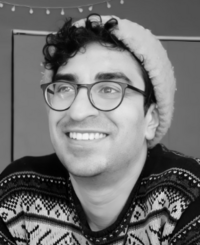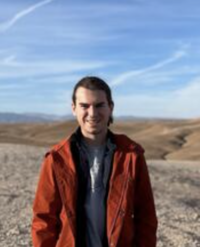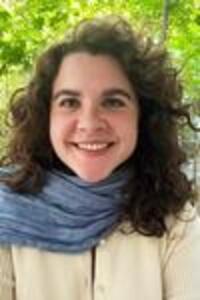May 13, 2025
Yale Environmental Humanities is delighted to announce the five 2025 recipients of the Graduate Certificate in the Environmental Humanities sponsored by the Yale Graduate School of Arts and Sciences.
The Graduate Certificate is open to Yale doctoral students and professional school students who seek to establish a strong foundation in environmental humanities topics and methodologies across the humanities disciplines. Students must take three approved graduate classes and participate in a yearlong workshop to discuss key concepts and developments in the field. Students also complete a teaching or public humanities requirement and present their scholarly research to an interdisciplinary audience.

Kamil Ahsan (History of Science and Medicine)
Kamil Ahsan researches environmental history and the history of coral reef sciences in the nineteenth and twentieth centuries. Building upon a prior Ph.D. in Developmental Biology and an M.A. in Conceptual and Historical Studies of Science, his dissertation narrates how contingent human interactions in the 20th century constructed the “reef” in Belize, Sri Lanka, the Gulf of Mexico, and the Philippines in both local and global ways. For Kamil, the environmental humanities offered a way to study the construction of ideas like “nature” and definitions of reality other than those offered by Eurocentric science.

Dante Lariccia (History)
Dante Lariccia studies energy history, the history of the modern United States, and global histories of empire. His research explores the diverse entanglements between carbon energy systems and imperial formations in the production of the contemporary climate crisis. For Dante, the Environmental Humanities program helped him to construct an academic program that engages the rich interdisciplinary literature on the Anthropocene, and to reassess the role of colonial imperialism in the making of modern ecological crises.

Al Lim (Anthropology & School of the Environment)
Al Lim’s dissertation explores the fortune-oriented practices of crypto builders in Thailand, drawing on economic anthropology and Southeast Asian studies. For him, the environmental humanities is “not simply…a new subfield, [but] a mode of inquiry that is responsive to the challenges of the Anthropocene,” providing new tools for understanding the entanglements of social and ecological life. Al’s training in the environmental humanities has helped him to engage with topics as wide-ranging and interdisciplinary as hydropower dams and Bitcoin mining in Laos and the social infrastructures of cannabis businesses in Thailand.

Oliver Lucier (History of Science & Medicine)
As an environmental historian of the US and the world, Oliver’s research focuses on the history and impact of scientific knowledge about climate change during the long 20th century. In his dissertation, “Fields, Deserts, and Forests: Coming to Terms with Global Environmental Change in the American Century,” Oliver analyzes the science of plant-climate relations and its role in managing environmental crises. For Oliver, the environmental humanities are a “necessary and generative” approach to framing environmental challenges in “more just, equitable ways” that respond to the existential problem of our time.

Alison Renna (Religious Studies)
Alison Renna is a scholar of the social studies of religion, science, and technology, with a concentration on the ways that science and technology shape our concepts of environment, the way we treat the environment, and especially, the kinds of obligations we imagine ourselves to have to the environment. Her research explores the influence of speculative thought upon technoscientific concepts of “life,” “responsibility,” “cosmos,” and “knowledge.” For Alison, the necessity of the environmental humanities comes from the deep “inseparability of the scientific study of the environment and the humanistic articulation of concepts, obligations, social life, and concepts of the good.”